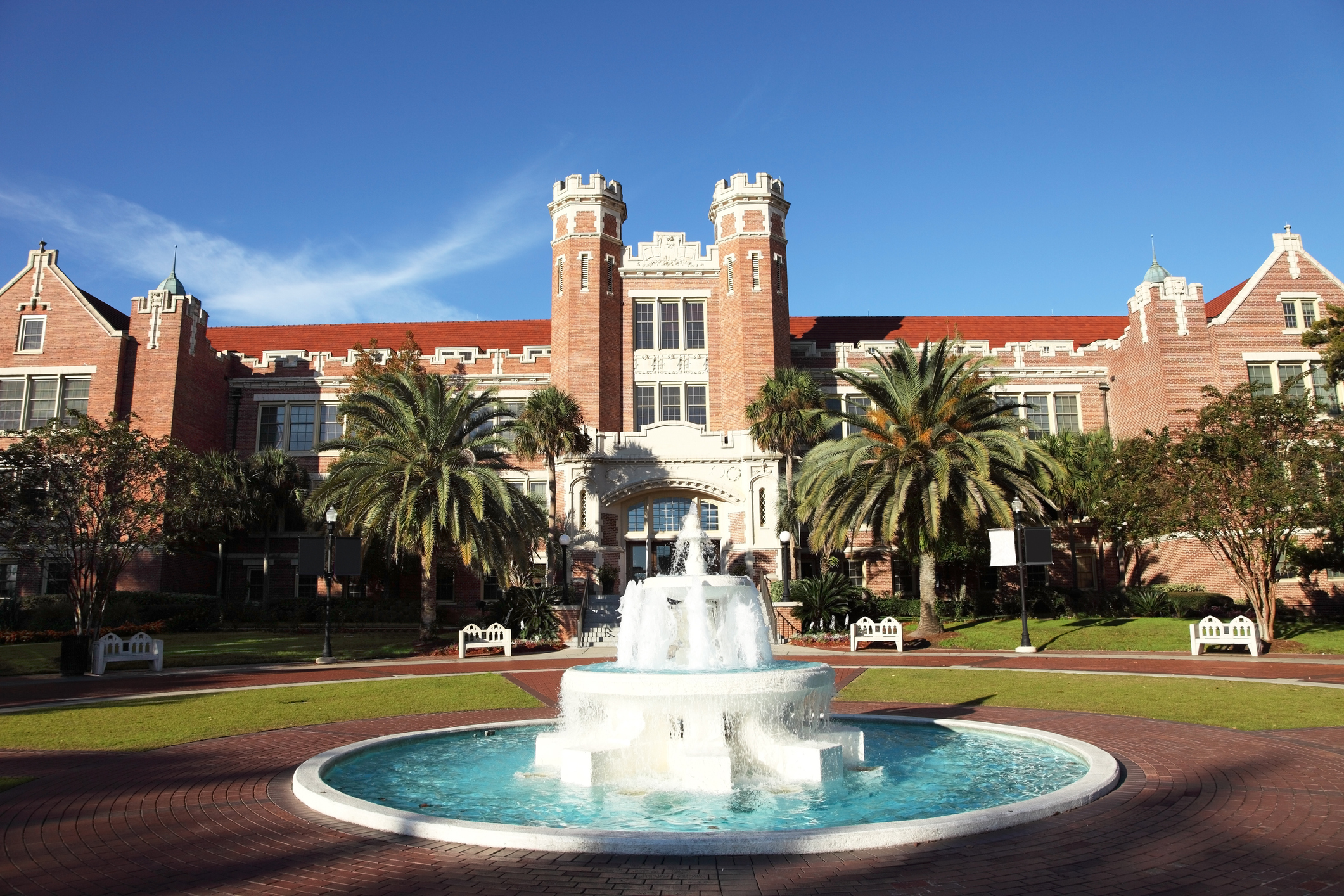Florida vs. Florida State: How Do They Compare?
As leading research institutes in the Sunshine State, University of Florida and Florida State University are two of only three schools in the state to be officially designated as preeminent research universities for meeting academic and research excellence standards. Both schools are also strong in athletics. They are both NCAA Division 1 schools for football.
While the schools have a lot in common, there are a few differences that can help you figure out which school will be the best fit for your goals.
What Should You Know About the University of Florida?
Founded in 1858, the Gainesville-based University of Florida prepares students to be innovators in a world at “an economic and ecological crossroads.” In 1884, the school became the first land-grant college in the state. It offers 103 bachelor’s degree programs, including geomatics, biosecurity, and digital arts.
UF has a strong focus on being a space for global leaders to solve global challenges. In 2020, over 95 nations were represented among the student body.
The school also has roughly 180 research centers and institutes like the Emerging Pathogens Institute and the Florida Energy Systems Consortium. Students can also find volunteer opportunities at the Center for Leadership & Service.
What Should You Know About Florida State University?
Founded in 1851 in Tallahassee, FSU is the oldest continuous site of higher education in Florida today. The research university offers 282 degree programs at the bachelor’s, master’s, and doctoral levels. Its new Legislative Internship Program gives students the chance to gain experience in Florida’s legislative process.
Florida State is one of the country’s top research institutions for producing Fulbright U.S. Scholars. There are six Nobel Laureates as faculty members at the university.
Their athletic program, the Seminoles, is highly regarded as well. Three Seminole golfers were named to the 2023 All-American Scholar Team by the Women’s Golf Coaches Association.
Florida vs. Florida State: 5 Key Differences
Florida and Florida State have many striking similarities, but there are five key differences you should consider when thinking about which one will be right for you.
1. Acceptance Rate
While both schools are highly selective, UF has a lower acceptance rate of 23% compared to FSU’s rate of 25%. Both schools also require high test scores, but the average SAT and ACT scores among accepted students are higher at UF.
For example, the median score among admitted students for the SAT math section is 640 at FSU and 700 at UF. The median ACT composite score for Florida State is 29, but 31 at the University of Florida. More admitted students actually go on to enroll at UF when compared to Florida State University.
2. Cost of Attendance
At the undergrad level, the cost of attendance is slightly higher at FSU compared to UF. In-state tuition for undergraduates at FSU is $4,640, while it is $4,477 at UF. Out-of-state tuition for the University of Florida is more notably higher at $25,694, compared to Florida State’s rate of $19,084.
The cost of attending a graduate program at University of Florida is actually higher at $10,770 in-state and $27,335 out-of-state. FSU, on the other hand, has an in-state tuition of $9,684 and an out-of-state tuition of $24,116.
3. Campus Size
The two campuses vary greatly in size. FSU’s main campus is 487 acres, while UF’s is 2,000 acres. That means the main University of Florida campus is more than four times larger than FSU’s main campus.
Note that FSU owns an additional 1,715 acres of land in six Florida counties and leases sites in-state and overseas.
4. Student Body Size
UF has a slightly larger student body than FSU. UF has roughly 53,000 students enrolled, while FSU has about 44,000. Both are considered to be large schools.
Both schools have a high percentage of online students. 92% of UF’s student body and 93% of FSU’s students are online. They also both have slightly more female students than male students, with female student populations of 57% at UF and 58% at FSU.
5. Student-to-Faculty Ratio
Another key difference between the schools is the student-to-faculty ratio. Despite its larger student body, UF actually has a lower student-to-faculty ratio than FSU.
The University of Florida has a student-to-faculty ratio of 17 to 1, compared to Florida State’s 21 to 1 ratio. UF lowered its faculty-student ratio in the past five years, bringing it down from 21:1. If you want smaller class sizes, you may prefer UF over Florida State.
Florida vs. Florida State: Which Is Right for You?
The right school for you will depend on your own unique needs and interests. UF applicants need higher marks to get admitted, so Florida State could be a better option for someone with lower testing scores. But also keep in mind that FSU is slightly more expensive in-state.
The right school for you might also depend on campus size. FSU’s main campus is a fraction of the size of UF, so if you prefer a larger physical campus, UF may be the right choice for you. Those who enjoy a lower student-to-faculty ratio will prefer UF. Everyone’s situation is different, so only you can decide which is best for you.
Frequently Asked Questions About Florida vs. Florida State
Is Florida State or University of Florida better?
While both Florida and Florida State have a strong reputation for research and job placement after graduation, Florida State is second to University of Florida in BestColleges’ rankings for the Sunshine State.
Of course, this doesn’t determine what school will be better for you. That’s going to depend on what you want out of your time in college.
Why is the University of Florida so highly ranked?
University of Florida is a well-rounded university that prioritizes community-building in the state, nation, and world.
The school has a $16.91 billion economic impact on the state of Florida. It conducted $1 billion worth of research in 2022. UF was awarded Best Global Incubator for Sid Martin three times.
Is Florida State University respected?
FSU is a highly respected research institution at the frontlines of technological innovation. The school announced its Magnetic Field Laboratory will soon receive a $5.3 million research investment from the National Institutes of Health for biochemical advancement.
Explore More College Resources

Best Colleges in Florida + Full List of Schools
Check out our guide to the best colleges in Florida to learn about education options and career paths in the Sunshine State.

by Reese Lopez
Updated August 19, 2024

Best Online Colleges in Florida 2025
Sunshine, coastline, and prestigious schools attract students to Florida. Discover more about the benefits of attending an online college in Florida.

by Nalea Ko
Updated May 27, 2025